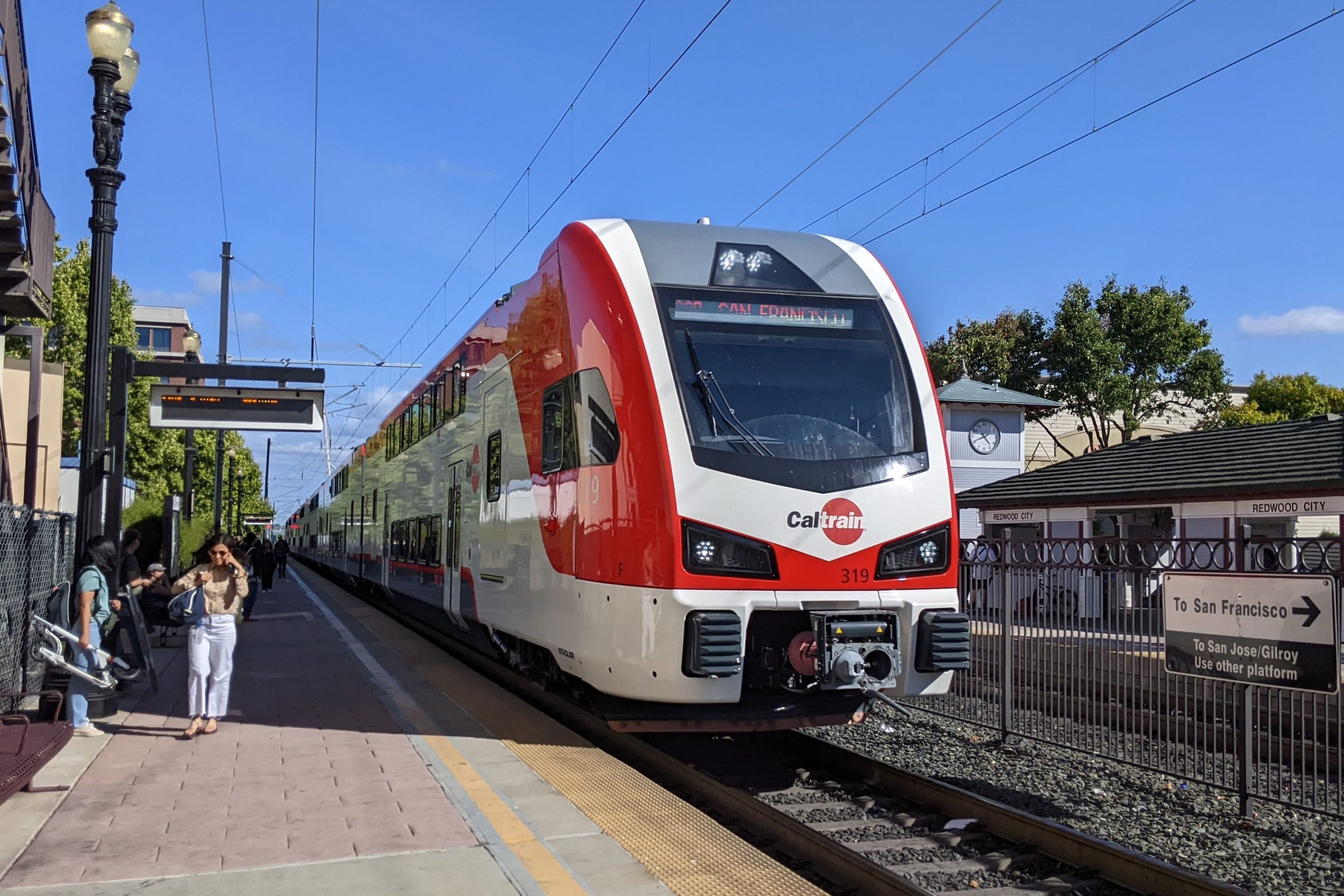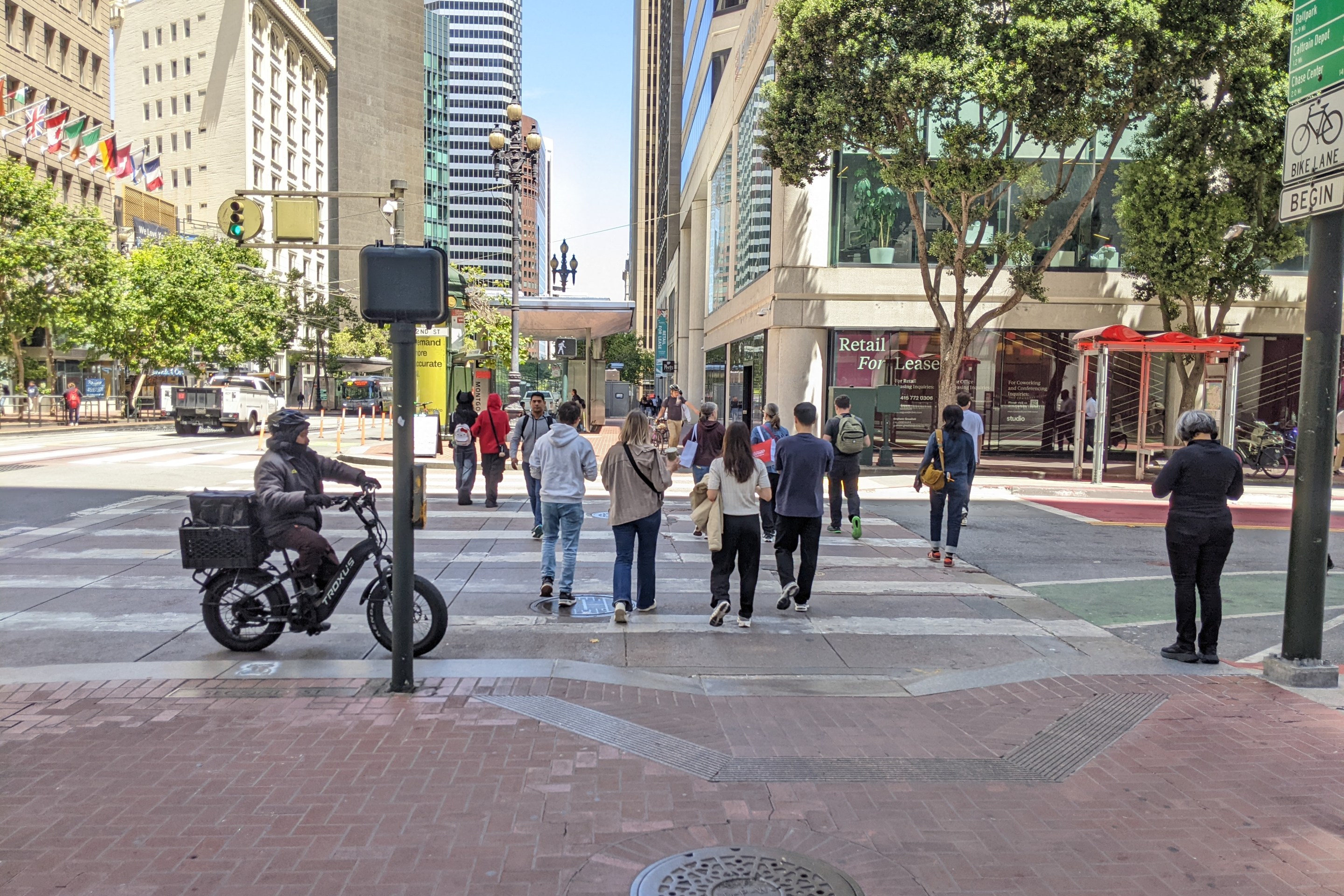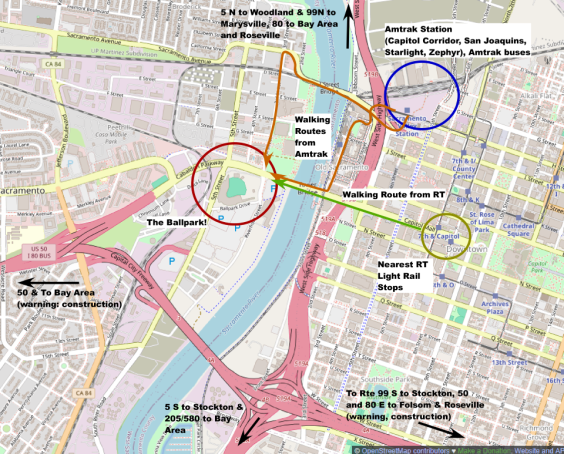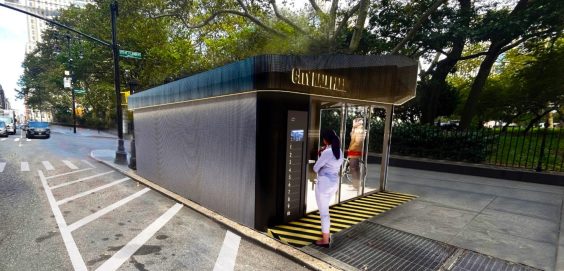 Photo by Jeffrey Martin courtesy of the League of American Bicyclists.
Photo by Jeffrey Martin courtesy of the League of American Bicyclists. Transportation Secretary Ray LaHood made a surprise visit to the closing reception of the National Bike Summit last night, speaking to a record crowd of bicycle advocates and industry representatives, many of whom spent the day swarming the halls of the Capitol as part of the League of American Bicyclists (LAB) annual lobby day.
"People get it. People want to live in livable communities," LaHood told the crowd, after hoisting himself atop a table in the Dirksen Senate Office Building room so the large gathering could see him. "People want
streetcars that are made in Portland, Oregon. People want walking
paths, biking paths, and opportunities for families to really do the
things they do best, which is to hang together and have fun. You
all created an opportunity for America with all of your hard work."
"I’ve been all over America, and where I’ve been in America I’ve been
very proud to talk about the fact that people do want alternatives.
They want out of their cars, they want out of congestion, they want to
live in livable neighborhoods and livable communities." He added, to thunderous applause, "you've got a partner in Ray LaHood."
"Ray, we've got your back," said Congressman Earl Blumenaur, the founder of the Congressional Bike Caucus, who told attendees that they have made a difference but there are "a lot of people who don't get the big picture yet."
The reception ended the league's 10th annual summit, which saw a record number of attendees: more than 700 advocates from all over the country took part.
"From my perspective what has changed most dramatically is not just the
numbers over the years, but our own belief in the
ability we have to convince others this stuff actually works," said Andy Clarke, President of the LAB. "We've got
examples in the field now in San Francisco, in Portland, in Chicago, New
York City, where you can document a real change in behavior, and we've
got mode shift going on and we can see why it's happened."
The underlying theme, as it has been in years past, was the reauthorization of federal transportation law. Bike advocates also asked lawmakers to expand programs like Safe Routes to School and adopt new legislation to improve conditions for walking and biking.
"It's a challenging time to be asking for more funding," said Clarke. "But this isn't new money, first and foremost. There's money in the system that can be used that isn't being used on safety programs or bridges or congestion relief programs that can very legitimately be used for biking and walking."
That message, said Clarke, is what advocates were urged to tell their representatives.
"I was rather impressed with some of the speeches our people made," said bicycling pioneer Gary Fisher, who attended the summit for the first time. "We keep coming and coming and coming and it keeps getting bigger and bigger."
Fisher, wearing his usual tweed suit, joined other advocates in lobbying representatives and ran into Senator Dianne Feinstein in the hallway. Fisher said he thinks lawmakers got the message that the bicycle movement is truly grassroots.
The California delegation was the largest at the event, with more than 60 members. Later in the evening, a benefit at a Union Station restaurant for the California Bicycle Coalition raised more than $30,000. CBC President Dave Snyder says the organization hopes to use the money to hire an executive director.
"The reason I came here was to get national help to revive the CBC and it was gratifying to see the national bike industry and the California bike industry recognize how important it is to have a strong California bicycle voice with reauthorization coming up," said Snyder. "It surprised me to see how eager Californians are to see a powerful bike coalition in the state."
For more on the National Bike Summit, visit Bike Portland. Jonathan Maus cranked out some excellent coverage.
We've also got video of most of LaHood's speech to the bike summit, but a warning that the quality isn't the best:
 Congressman Earl Blumenaur. Photo by Jeffrey Martin courtesy of the
Congressman Earl Blumenaur. Photo by Jeffrey Martin courtesy of theLeague of
American Bicyclists.
 A large crowd of advocates packed a room for the National Bike Summit closing reception in the Dirksen Senate Office Building. Photo by Bryan Goebel.
A large crowd of advocates packed a room for the National Bike Summit closing reception in the Dirksen Senate Office Building. Photo by Bryan Goebel. Cycling pioneer Gary Fisher meets Transportation Secretary LaHood. Photo by Bryan Goebel.
Cycling pioneer Gary Fisher meets Transportation Secretary LaHood. Photo by Bryan Goebel. 




